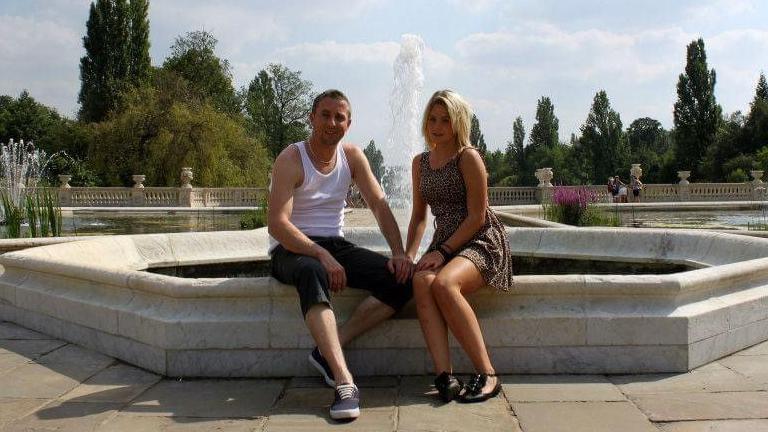'We trusted the system but it let down our son'
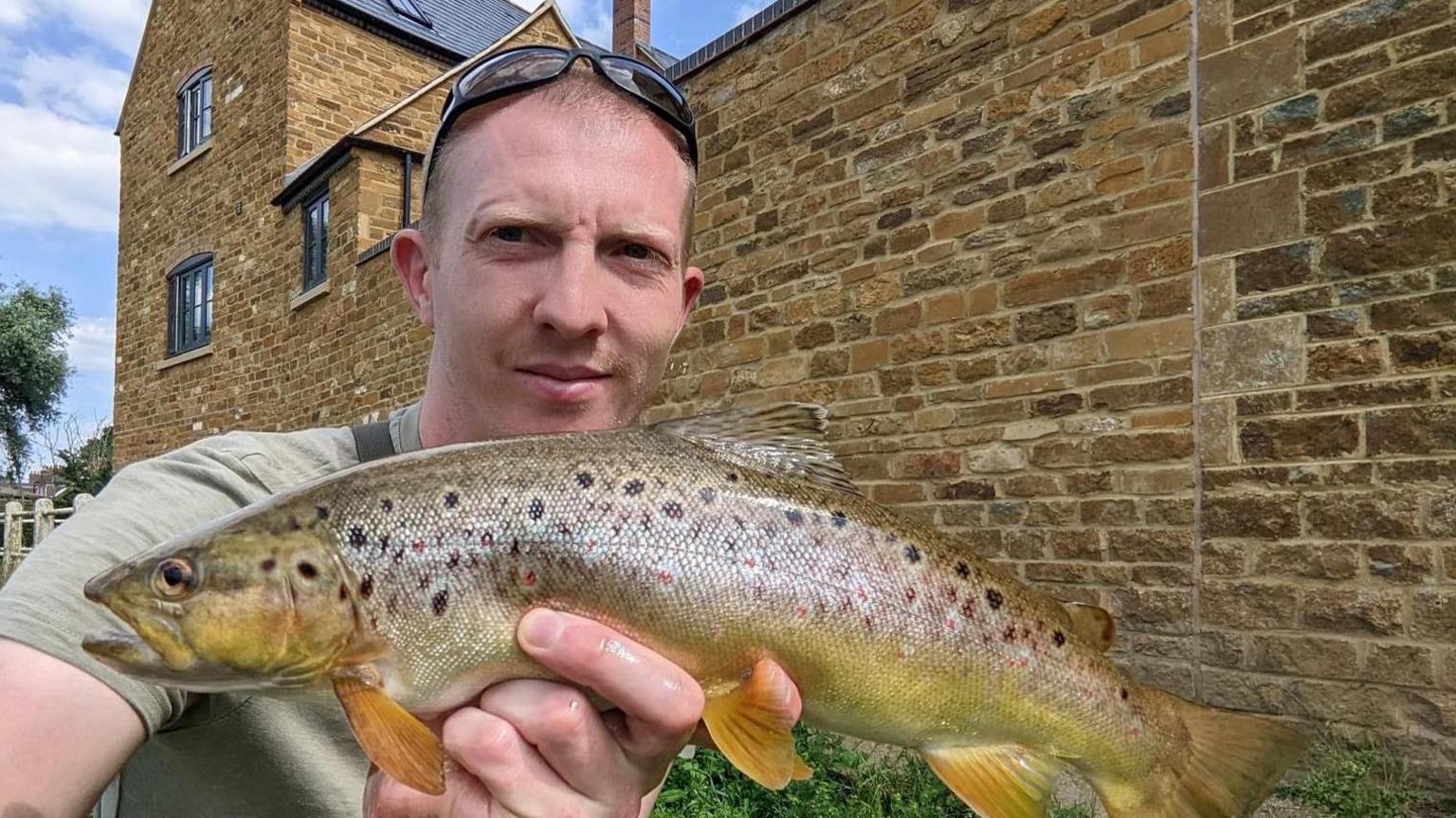
Liam McCarlie, a keen angler, experienced several mental health crisis episodes after the death of his grandmother in 2021
- Published
The family of a man who took his own life while waiting for an ambulance say he would still be alive had his community mental health care been better.
Liam McCarlie, 35, of Creaton, Northamptonshire, was under the care of Northamptonshire Healthcare Foundation Trust's (NHFT) mental health team when he died on 1 April 2023.
His father and stepmother said they and their son had believed the system would help him, but felt opportunities were missed and changes to patient monitoring were needed.
The trust said new measures to support patients in mental health crisis had been introduced.
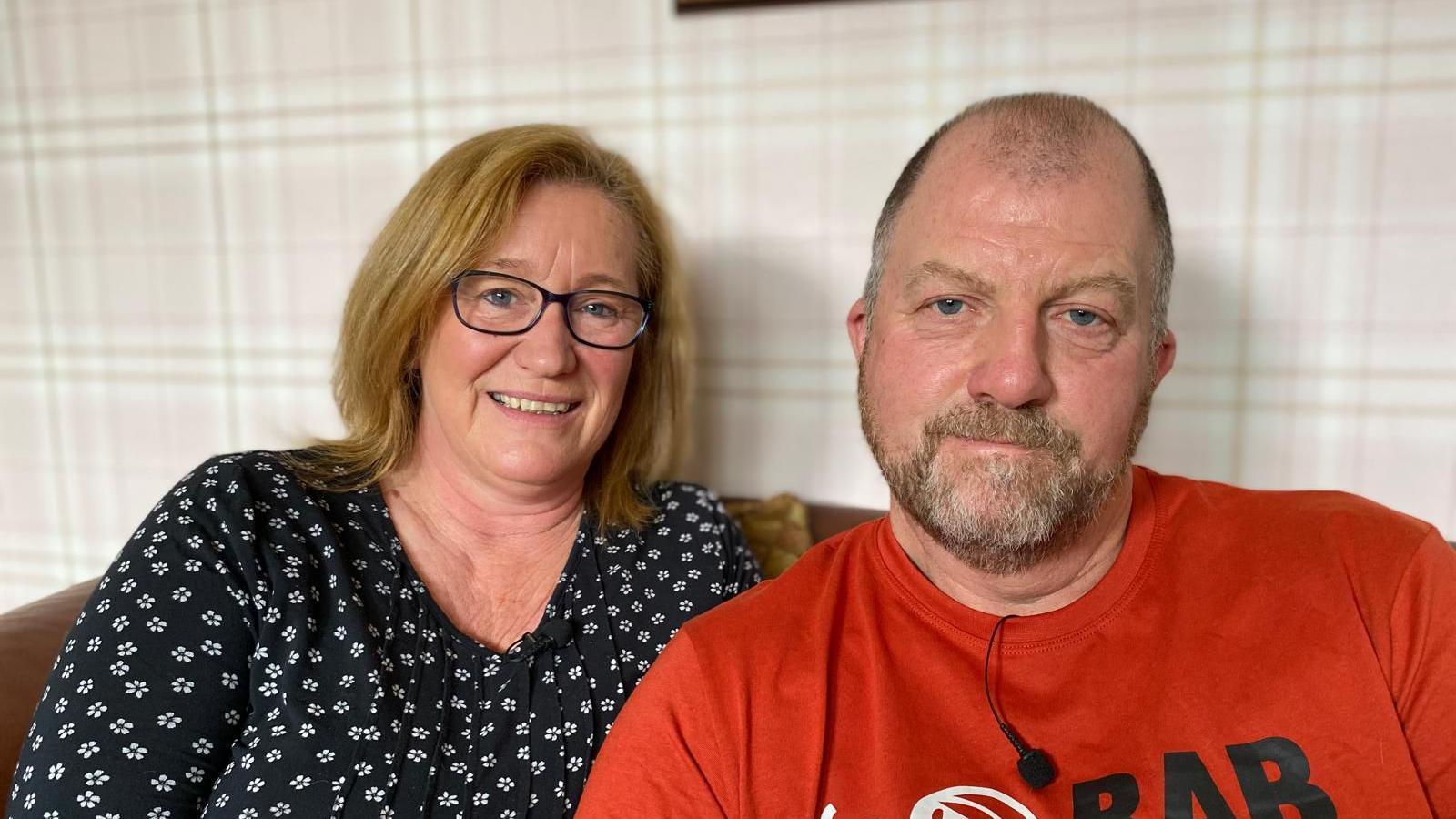
Lanor and Doug McCarlie say more should have been done to help Liam
Last year, while on holiday in Scotland, Doug and Lanor McCarlie became increasingly concerned about Liam after receiving worrying text messages and phone calls.
Stuck 600 miles (965km) away, they dialled 999 for an ambulance.
Mr McCarlie said: "He was giving indications he was going to take his life. We thought 'We can't mess around here.'"
It took more than five hours for the ambulance to arrive.
However, Mr McCarlie said his family did not blame the ambulance service.
"If only the mental health team had done a better job, we wouldn't have needed an ambulance that night," he said.
"Even 15 months on, we're still dealing with grief every day."
A coroner found the "significant" delay with East Midlands Ambulance Service (EMAS) contributed to Liam's death.
NHFT was not given any recommendations in his report.
'The support isn't there'
Liam's mental health began to deteriorate in 2021 after the death of his grandmother, who was "his absolute rock", his parents said.
He experienced multiple crisis episodes from that point.
Mrs McCarlie said: "Six months after his nan died, he attempted to take his own life and he was resuscitated twice, and that's when we realised the support isn't there.
"He had one night in hospital and was deemed fit for discharge back home.
"We pushed hard to get him a three-day crisis bed. From then he was under the community mental health team."
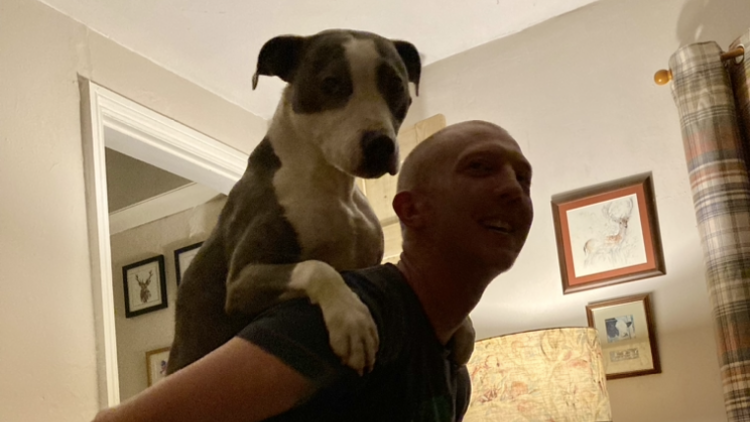
His family said Liam's dog Cleo was his "absolute world"
The couple described him as "quiet, kind, thoughtful, caring, shy and patient".
A keen fisherman and amateur nature photographer, his dog Cleo was "his absolute world", they said.
He had been diagnosed with ADHD and was waiting to be assessed for emotional unstable personality disorder at the time of his death.
While waiting, he was taken off all his medication and Mrs McCarlie said there was no evidence the community mental health team had been in touch with him.
In the week before his death, his GP made an urgent referral after his family struggled to find help for his deteriorating mental health.
"I called the community mental health team before that and said 'Where can I bring him? I need to bring him now'," said Mrs McCarlie.
"I think he wasn't in a good place and we realised we were out of our depth."
During a call with the urgent care and assessment team (UCAT), the urgency of his referral was downgraded and he was given an appointment for the Tuesday after he died.
"We feel that was a completely missed opportunity," she said.
"We're not in a position to say what should have been done but it's clear he should not have been left."
If you are suffering distress or despair and need support, including urgent support, a list of organisations that can help is available here.
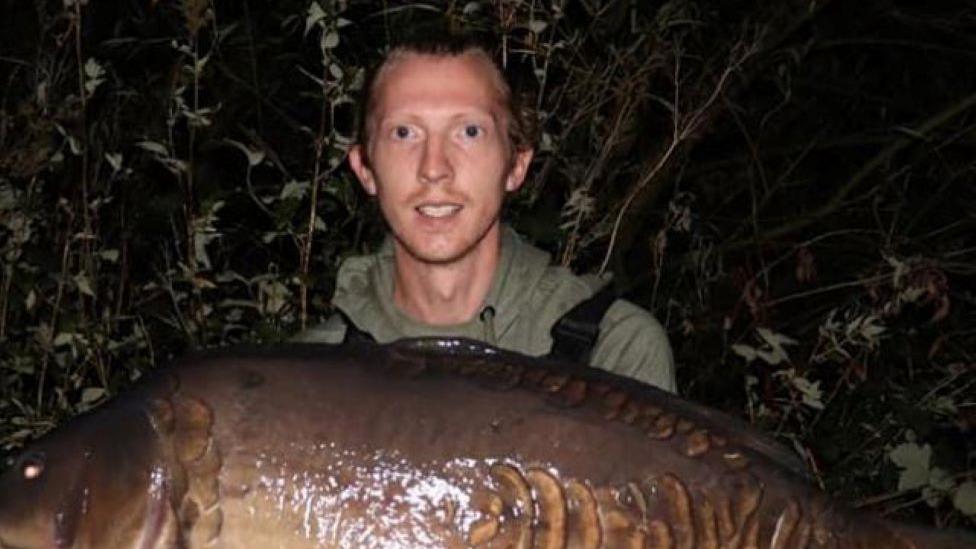
Mr McCarlie's father and stepmother said both they and their son put their faith in the mental health trust to get him the help he needed
Mr and Mrs McCarlie said they felt failed by a system they believed would help.
"Never in our wildest dreams did we think that the ambulance would take five hours," said Mrs McCarlie.
"We hoped that when he stopped responding [to messages] that was because he was now in the hospital or on the way.
"When we got the paramedics' call, we knew."
Mr McCarlie said: "We believe in the system. We go to work, pay our taxes we believe the system is there to protect you and help you when you need it.
"But that hasn't really been our experience.
"We didn't know he was being let down because we had faith in the system working."
They said changes were needed to prevent patients falling through gaps in care.
They want case managers appointed for each patient, to "oversee" all contact with services and escalate matters if needed.
NHFT said this was now in place.
Liam's father also said there should have been a care management programme for his family to help them support their son.
"Luckily we're both very mentally strong, but emotionally our batteries were very low all the time," he said.

Mr McCarlie's family hope to use his photos to raise funds fora mental health charity
Liam's family hope to turn his nature photos into cards that can be sold to raise funds for mental health charity Mind.
Adam Smith, director of mental health for NHFT, said the trust engaged with the coroner to address concerns during the inquest.
“As part of our ongoing commitment to developing our services we have introduced a number of new measures recently to improve care and support for people experiencing mental health crisis, including a new mental health crisis response unit working in partnership with the ambulance service and a new mental health text messaging service," he said.
He added all UCAT assessments were held in person and guidelines had been introduced about the importance of communicating with family members and carers.
Staff training also highlighted the "importance of completing risk assessments, clear safety planning and safeguarding referrals," he said.
EMAS and Northamptonshire Integrated Care Board previously said they were working closely to assess and implement actions after the prevention of future deaths report.
Follow Northamptonshire news on Facebook, external, Instagram, external and X, external. Got a story? Email eastofenglandnews@bbc.co.uk, external or WhatsApp us on 0800 169 1830
Related topics
- Published29 June 2024
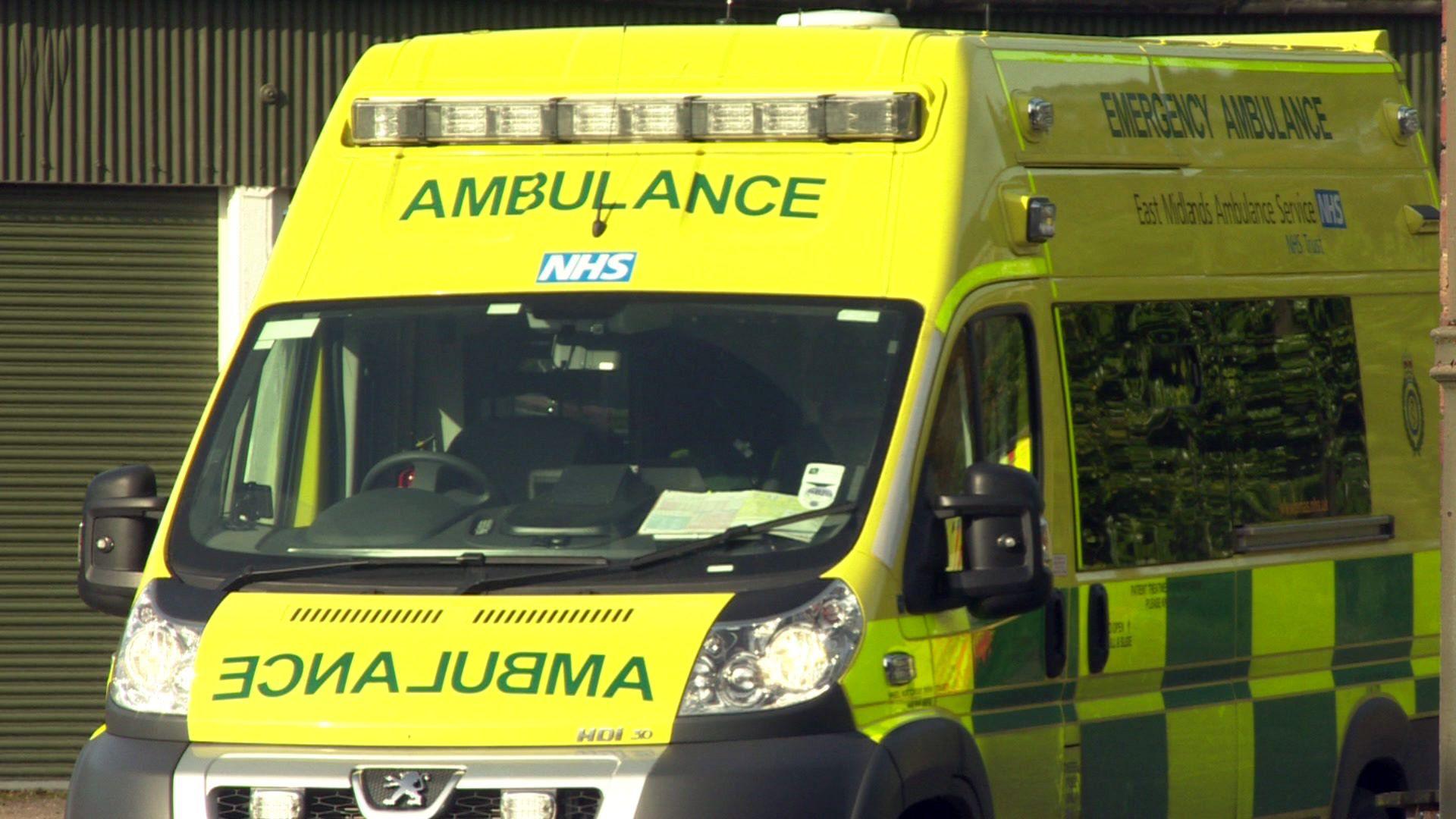
- Published11 July 2024
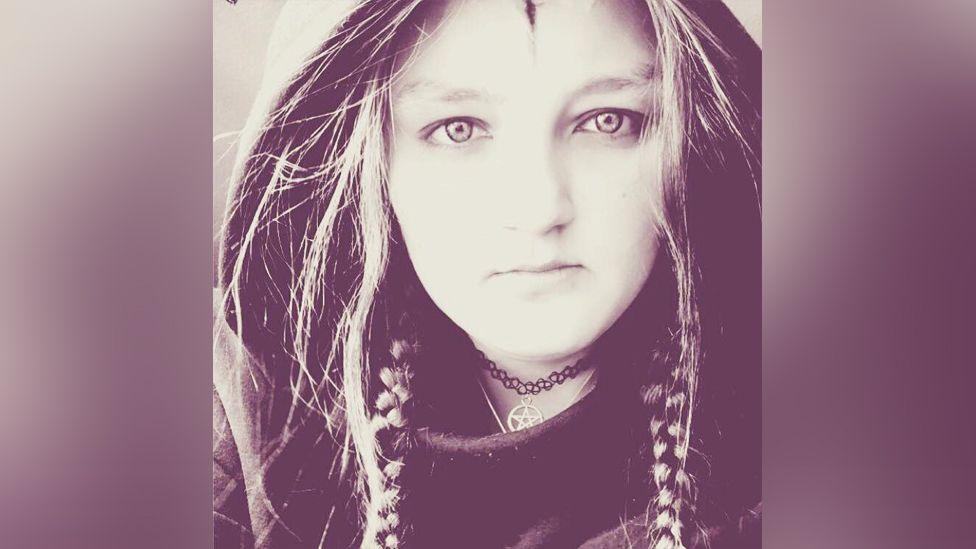
- Published29 June 2024
